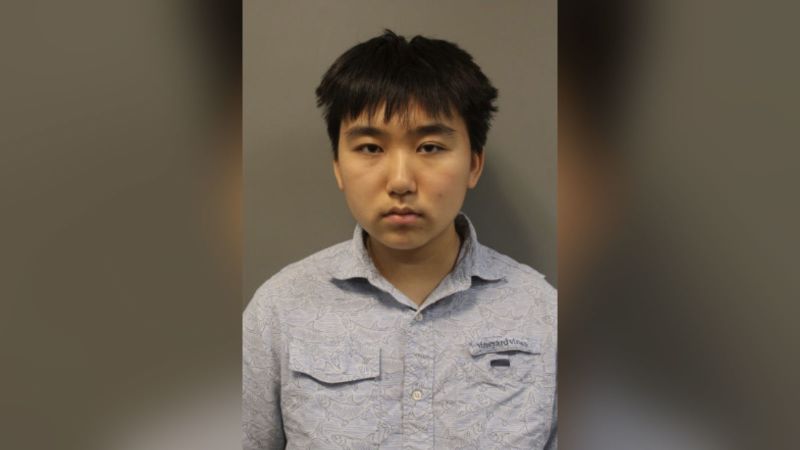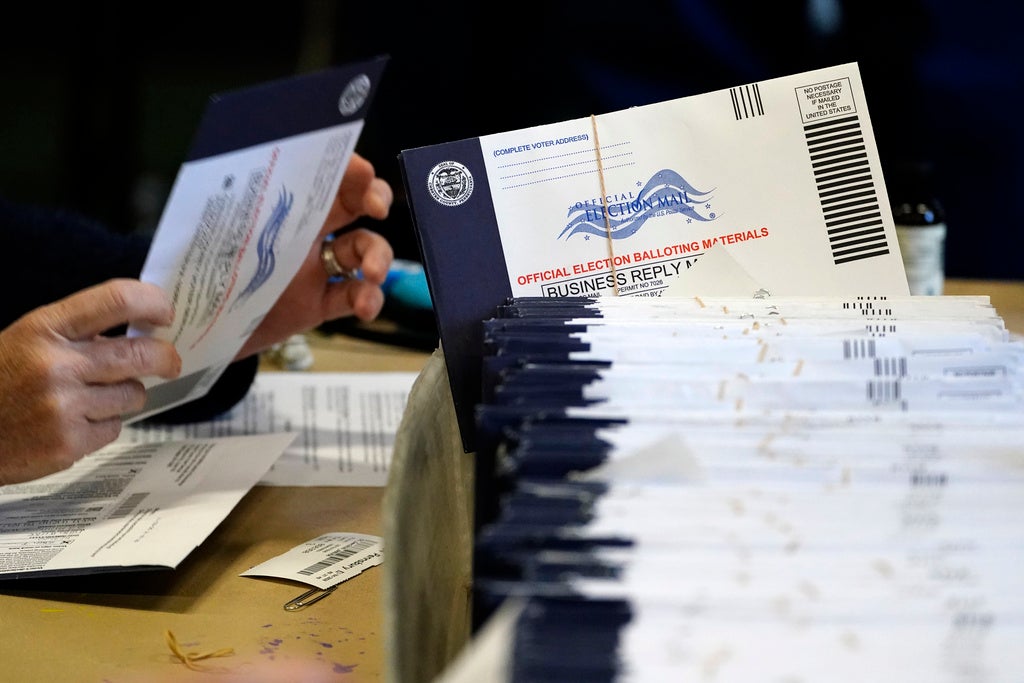CNN
—
A Maryland high school student was arrested and charged with threat of mass violence after police say they discovered evidence revealing the teen had plans to commit a school shooting, authorities said Thursday.
The arrest on Wednesday came after authorities discovered a 129-page document they say was written by 18-year-old Alex Ye, the Montgomery County Department of Police (MCPD) said in a news release Thursday.
Authorities learned of the writings following an exchange Ye had via Instagram messaging with an unidentified person who felt a school shooting was “imminent,” according to the teenager’s arrest warrant. The unidentified person knew Ye from an inpatient treatment at a local psychiatric facility, the warrant says.
Ye referred to the writings as “his memoir,” which begins with a disclaimer that it is a work of fiction, the arrest warrant says.
“In the document, Ye writes about committing a school shooting, and strategizes how to carry out the act. Ye also contemplates targeting an elementary school and says that he wants to be famous,” MCPD said in its news release. “A search warrant obtained by MCPD led to internet searches, drawings and documents related to threats of mass violence.”
MCPD said it was notified by the FBI about Ye’s alleged writings, which prompted a joint investigation by the two agencies.
Ye is being held at the Montgomery County Central Processing Unit awaiting a bond hearing. It is unclear if Ye has an attorney.
Ye was hospitalized in December 2022 for “threatening to ‘shoot up a school,’ homicidal, and suicidal ideations,” according to the arrest warrant. The student was then hospitalized for five months in 2023 at Johns Hopkins Pediatric Unit for “homicidal ideations.”
More recently on March 15, FBI agents interviewed a school counselor who worked with the student from late 2022 to early 2023 and said Ye would “express violent thoughts such as shooting up the school, wanting to hurt other people, and would smile while saying it,” according to the arrest warrant.
The student “did say he wanted to shoot up Wootton HS and ‘his elementary school,’ but never stated the name of the elementary school. The Counselor knows the school to be Lakewood Elementary,” the arrest warrant says.
In response, the school district has increased security as a precaution, specifically at Wootton High School because “of a valid concern of a school shooting,” the arrest warrant noted, adding that they hope it would serve as “a visual deterrent.”
Montgomery County Public Schools (MCPS) said it is aware of the arrest of a student from Wootton High. The student has not physically attended classes since Fall 2022 and has been enrolled in an online program, the district added.
“The charges are extremely serious, involving alleged threats to harm others,” the school system said in a statement. “We value and appreciate the close collaboration between MCPS and MCPD in this matter, which is an example of our shared commitment to identify and address potential threats with due process before they materialize.”
MCPS declined to speak more on the matter, citing student privacy laws. Police announced that a news conference is planned for Friday.































